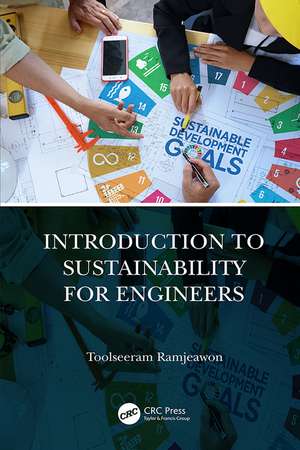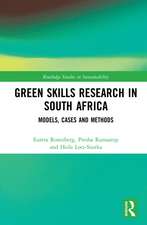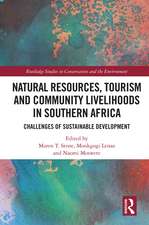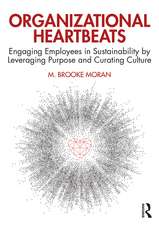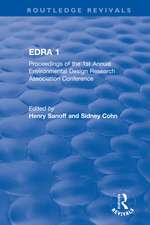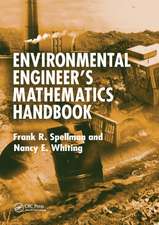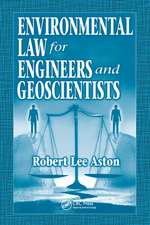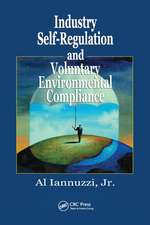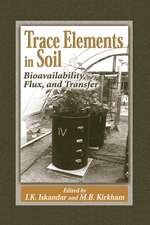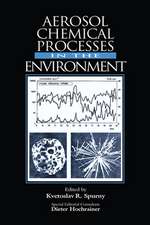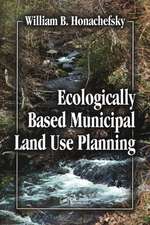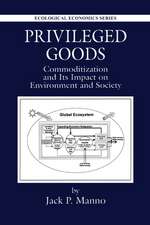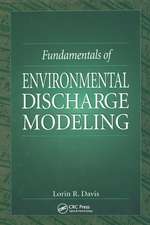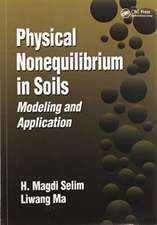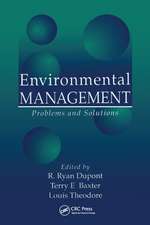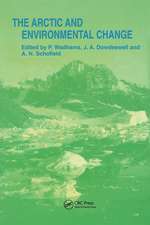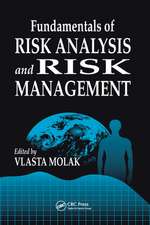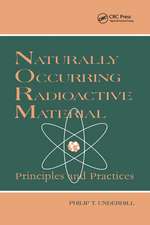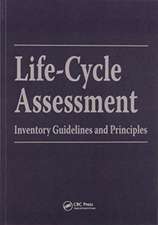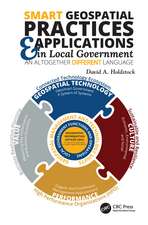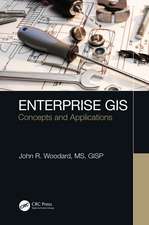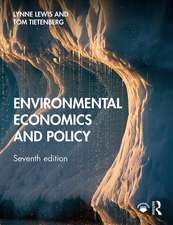Introduction to Sustainability for Engineers
Autor Toolseeram Ramjeawonen Limba Engleză Hardback – 28 feb 2020
Five Key Benefits:
- A comprehensive textbook for engineering students to develop competency in sustainability.
- Presents a framework for engineers to put sustainability into practice.
- Presents the link between sustainability and the design process. It shows the application of a sustainable engineering design process for putting sustainability into practice.
- There are well woven case studies and links to websites for learning in various engineering disciplines.
- Includes challenging exercises at the end of each chapter that will inspire students and stimulate discussion in the class.
Preț: 602.34 lei
Preț vechi: 879.69 lei
-32% Nou
Puncte Express: 904
Preț estimativ în valută:
115.26€ • 120.89$ • 95.95£
115.26€ • 120.89$ • 95.95£
Carte tipărită la comandă
Livrare economică 01-15 aprilie
Preluare comenzi: 021 569.72.76
Specificații
ISBN-13: 9780367254452
ISBN-10: 036725445X
Pagini: 392
Ilustrații: 160
Dimensiuni: 156 x 234 x 22 mm
Greutate: 0.74 kg
Ediția:1
Editura: CRC Press
Colecția CRC Press
ISBN-10: 036725445X
Pagini: 392
Ilustrații: 160
Dimensiuni: 156 x 234 x 22 mm
Greutate: 0.74 kg
Ediția:1
Editura: CRC Press
Colecția CRC Press
Public țintă
Postgraduate and UndergraduateCuprins
1. Sustainable Development and the Role of Engineers 2. Sustainable Engineering: Concepts, Principles, and Frameworks 3. Tools for Sustainability Assessment 4. Fundamentals of Life Cycle Assessment 5. Introduction to Environmental Economics 6. Integrating Sustainability in Engineering Design 7. Sustainable Buildings and Sustainable Infrastructure Rating Systems 8. Policies and Instruments for Implementing Sustainable Development from a Life Cycle Perspective 9. Business and Sustainability 10. The Contribution of Engineers to Sustainability 11. Appendices
Notă biografică
Toolseeram Ramjeawon has more than thirty years of experience working for academic institutions, government agencies, industries and international organizations and is currently a Professor of Environmental Engineering and Head of the Department of Civil Engineering of the Faculty of Engineering at the University of Mauritius. In addition to his academic experience, he has acted as Technical Adviser to the Government of Mauritius and has undertaken several consultancy projects for national and global clientele including the African Development Bank (ADB), the United Nations Environment Programme (UNEP), the United Nations Development Programme (UNDP), the United Nations Economic Commission for Africa (UNECA) and the African Roundtable on Sustainable Consumption and Production (ARSCP).
Recenzii
This book is a great introduction for engineers in all sectors at all stages of their career. Sustainable development and the role of engineers and the engineering profession are clearly explained. There are easy-to-view charts, graphs, and infographics throughout and the case studies really bring the issues and solutions to life. The key concepts of sustainability, ways of thinking, the economy and using resources are related to sustainable engineering in all forms of engineering. Tools are provided for sustainability assessment complete with sections on procurement and stakeholder engagement. A framework for policies and instruments is given to allow for sustainable development implementation. The whole life-cycle assessment process from definition to interpretation of results and costing is described. Life-cycle assessment is applied to various fields including water, energy, waste management, chemical production, the automotive industry, food and agriculture, and communication. Environmental economics are also covered along with details on how the environment can be valued against other market-based factors. The guidance on a sustainable engineering design process will allow engineers to design for life. Long-term measurement tools on sustainable building and infrastructure ratings are also included. Overall, this book will provide the tools and further reading needed for those who wish to make positive changes in engineering.
reviewed by Paula McMahon, Sir Robert McAlpine, UK, Civil Engineering Volume 174 Issue 1 February 2021, ICE
reviewed by Paula McMahon, Sir Robert McAlpine, UK, Civil Engineering Volume 174 Issue 1 February 2021, ICE
Descriere
Book introduces sustainability concept, core principles for sustainable development and decision making. Concepts like life cycle analysis, environmental economics, related institutional architecture and policy framework, business context of sustianability and so forth, are described. Appendix has summary of key concepts, strategies and tools.
